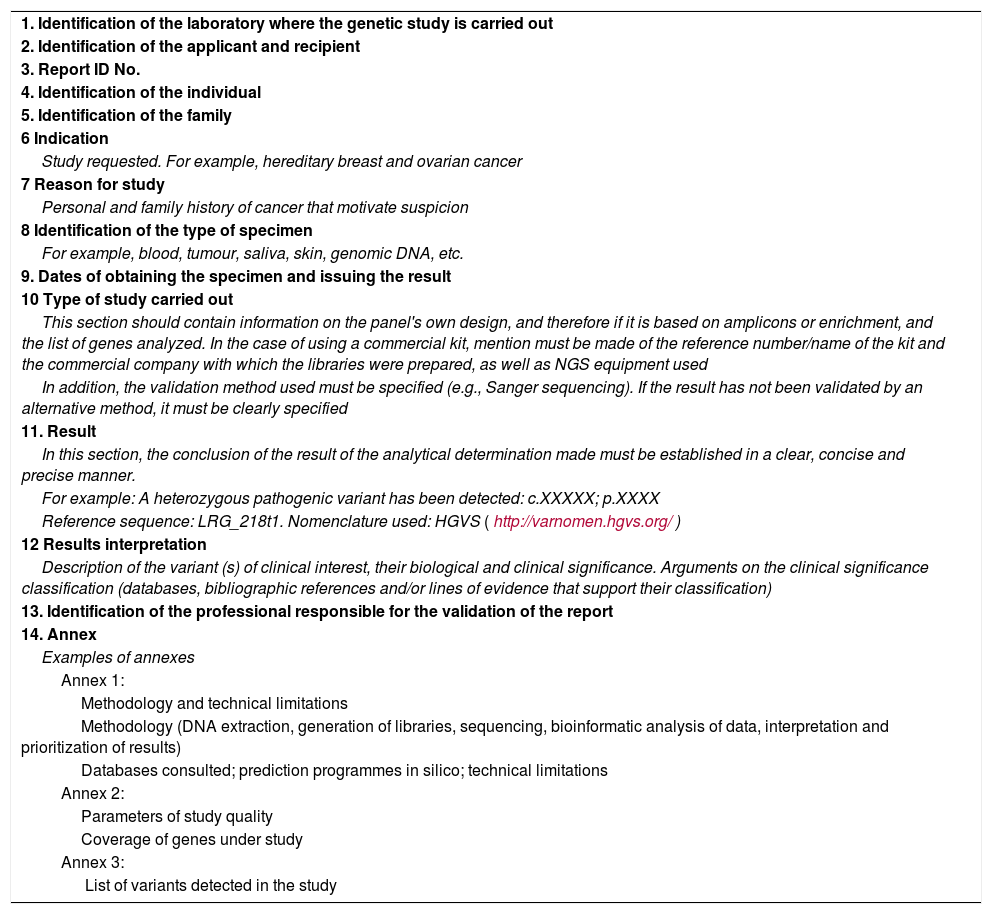Genetic diagnosis of hereditary cancer syndromes offers the opportunity to establish more effective predictive and preventive measures for the patient and their families. The ultimate objective is to decrease cancer morbidity and mortality in high genetic risk families. Next Generation Sequencing (NGS) offers an important improvement in the efficiency of genetic diagnosis, allowing an increase in diagnostic yield with a substantial reduction in response times and economic costs. Consequently, the implementation of this new technology is a great opportunity for improvement in the clinical management of affected families.
The aim of these guidelines is to establish a framework of useful recommendations for planned and controlled implementation of NGS in the context of hereditary cancer. These will help to consolidate the strengths and opportunities offered by this technology, and minimize the weaknesses and threats which may derive from its use.
The recommendations of international societies have been adapted to our environment, taking the Spanish context into account at organizational and juridical levels.
Forty-one statements are grouped under six headings: clinical and diagnostic utility, informed consent and genetic counselling pre-test and post-test, validation of analytical procedures, results report, management of information and distinction between research and clinical context.
This guide has been developed by the Spanish Association of Human Genetics (AEGH), the Spanish Society of Laboratory Medicine (SEQC-ML) and the Spanish Society of Medical Oncology (SEOM).
El diagnóstico genético de los síndromes de cáncer hereditario ofrece la oportunidad de establecer unas medidas de predicción/prevención eficaces en el paciente y sus familiares que se traducen en una disminución de la morbimortalidad por cáncer en las familias de alto riesgo genético. La secuenciación masiva (NGS) ofrece una considerable mejora de la eficiencia del diagnóstico genético, permitiendo un aumento del rendimiento diagnóstico con una reducción sustancial del tiempo de respuesta y costes económicos. En consecuencia, la implementación de esta nueva tecnología es una gran oportunidad de mejora en el manejo clínico de las familias afectas.
El objetivo de la presente guía es establecer un marco de recomendaciones útiles para una implementación planificada y controlada de la NGS en el contexto de la predisposición hereditaria a cáncer, que permita potenciar las fortalezas y oportunidades que ofrece dicha tecnología y minimizar las debilidades y amenazas que puedan derivarse de su uso.
Está inspirada en las recomendaciones de sociedades internacionales, habiendo sido adaptada a nuestro entorno, y teniendo en cuenta aspectos coyunturales a nivel organizativo y biojurídico.
Se aportan 41 declaraciones agrupadas en 6 apartados: utilidad clínica y diagnóstica, consentimiento informado y asesoramiento genético pretest y postest, validación de los procedimientos analíticos, informe de resultados, gestión de la información y distinción entre ámbito de investigación y ámbito asistencial.
Esta guía ha sido elaborada por la Asociación Española de Genética Humana (AEGH), la Sociedad Española de Medicina de Laboratorio (SEQC-ML) y la Sociedad Española de Oncología Médica (SEOM).







